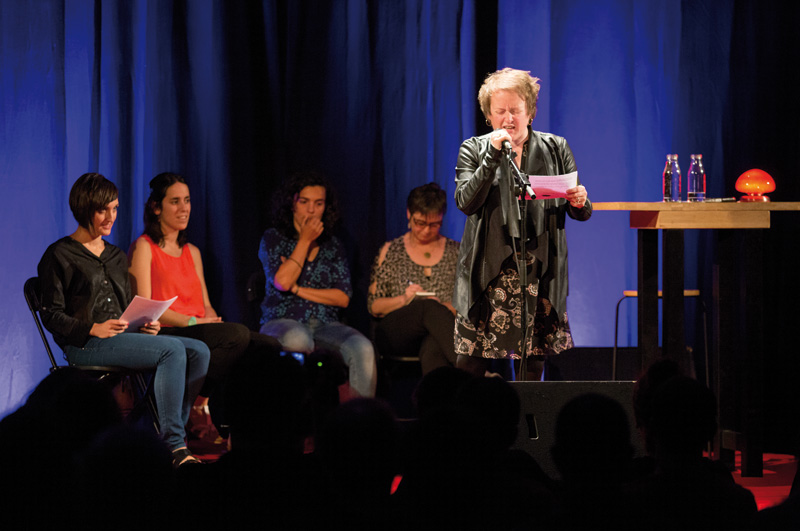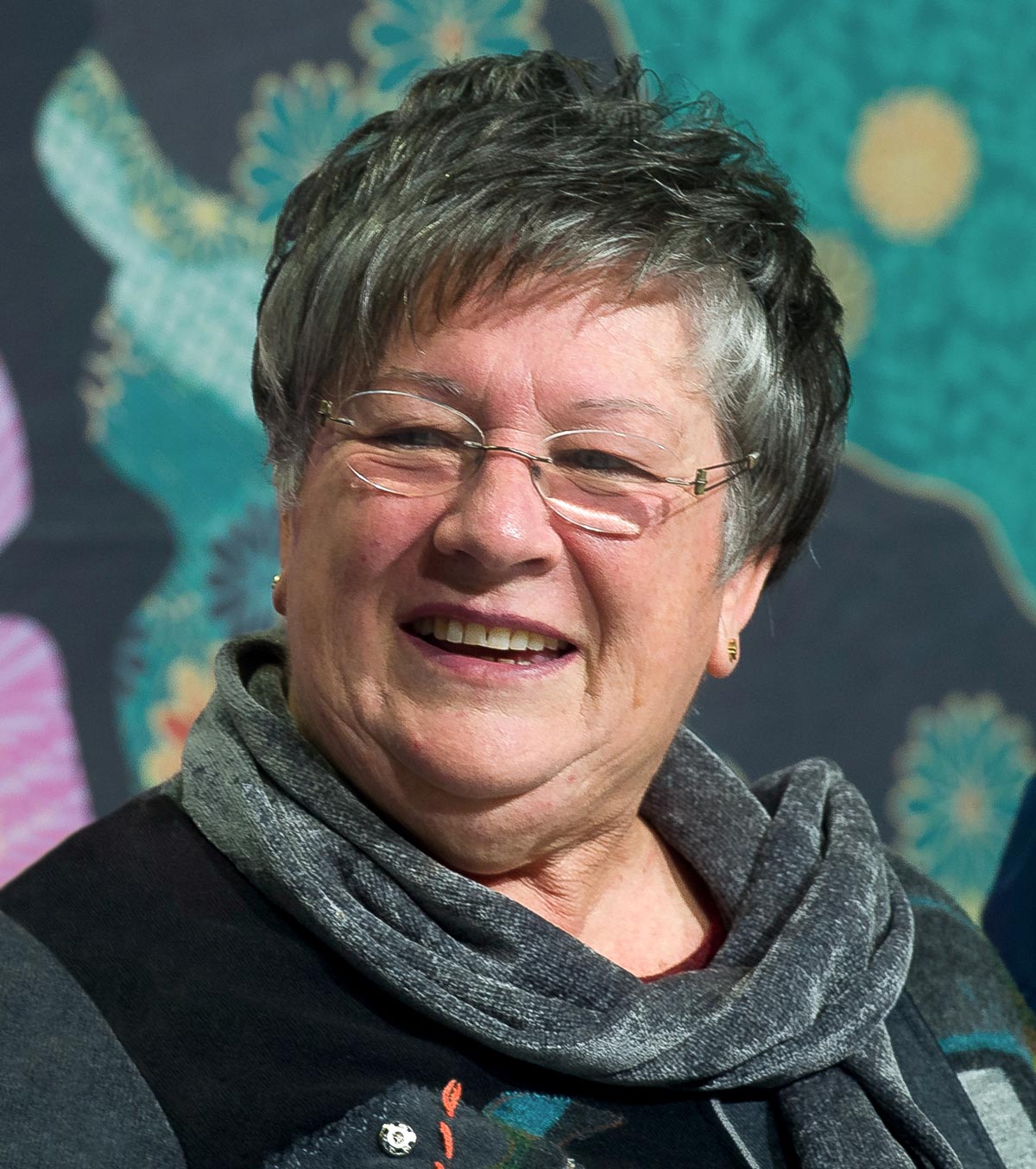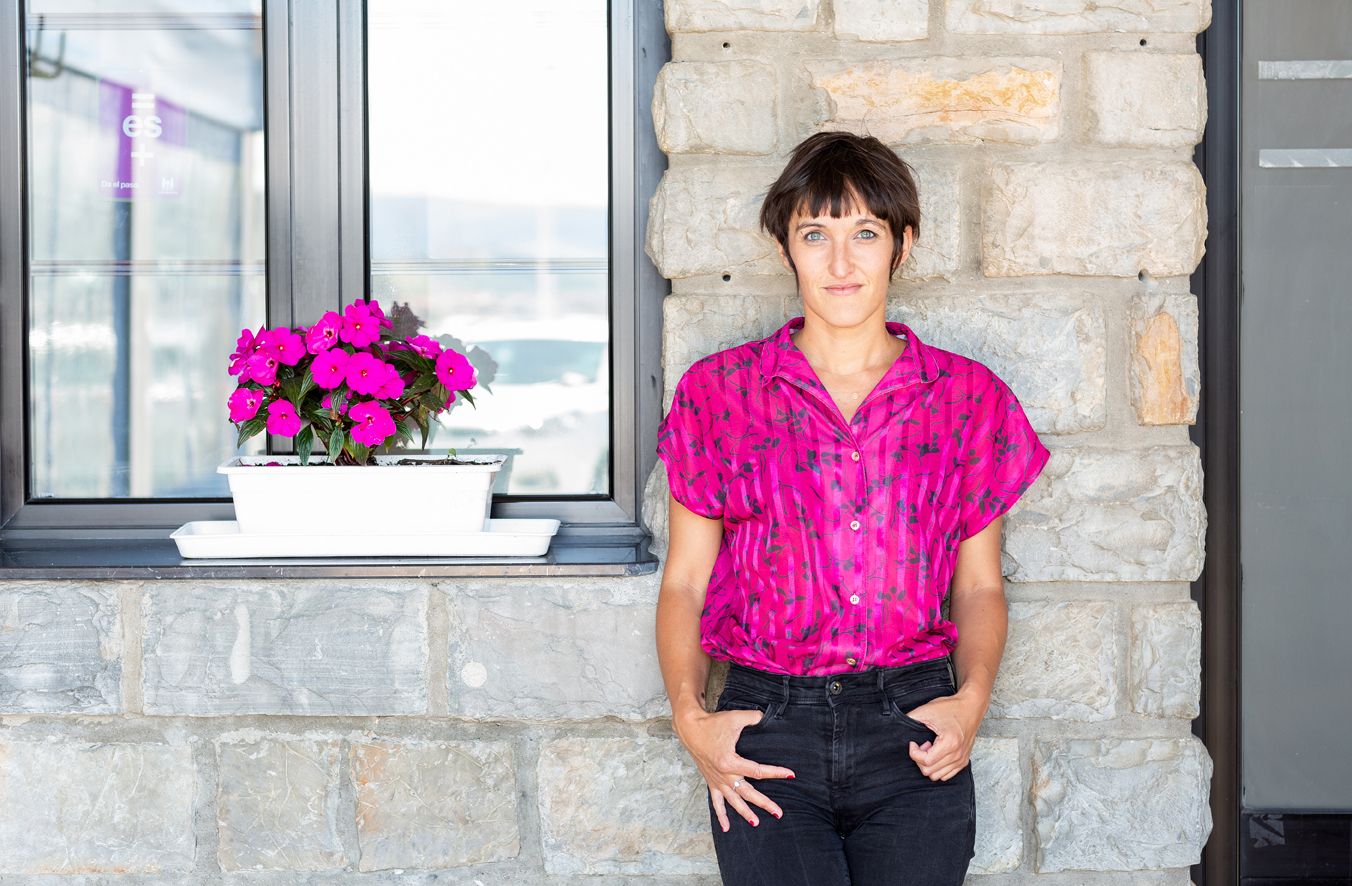Heard with the whole body

Europa bat-batean kantu inprobisatuaren nazioarteko topaketaren barruan, uztailaren 13an Tabakaleran egindako emanaldia. Partaideak:
Galestik: Karen Owen
Kubatik: Yunet López
Mallorcatik: Maria Isabel Servera
Mexikotik: Rebeca Limón
Euskal Herritik: Miren Amuriza eta Maialen Lujanbio.
We noticed that we didn't know what was going to happen that night. They were looking for a bench to sit on, and some were looking at a small stage and others were looking at the second and the third. For the audience, the first game of chairs was, therefore, to choose the scenario to look at. And for the first time in a program, our gazes met, face to face, with people who were sitting in another direction. Throughout the show, it was the key to creating that kind laughter and an atmosphere of complicity.
Uxue Alberdi gave a special entry to the performance. Alberdi's work was noted for months, fueled by a working group: exercises to merge songs unknown until then, themes, texts worked to give themes... It felt like the program had a very strong skeleton. The improvisers in a few moments jumped above that scaffold and in others fell, but the vigorous scaffolding was still there, guarantor of the session. We enjoyed big jumps, but we didn't fly. That cannot happen before. And yet, we left the room with the feeling that the afternoon deserved it.
At the beginning of the session came the image of the Bertso Eguna 2014, a great festival (mainly) composed of women. I thought with laughter “the room has been filled again with audiences and the organizers that appear on stage today have a face of joy...” I thanked Tabakalera for his work that he had put us to perpetuate with the whole body events beyond the parameters of expression, expression, metaphor and metaphor, and that, therefore, we had silenced the midwife of the critics of the nape. In languages we don't understand, all of the above values are inaccessible. My feeling was that you no longer had to “prove” anything in that session.
A number of issues identified
Each mold is beautiful as it is and there is no comparison: There was great complicity among the artists of each tip of the world: for example, when Miren Amuriza threw him in the stage session with Rebeca Limón de Huasteca “I see myself at the age of 15”. They were mirrors.
On each stage there was a couple of Euskaldunes, making translations into the ears of the artists and offering them all kinds of help. It was seen that custody had been taken to the scene.
The six stood out for their character as a plaza. The bravery, in the case of Limón, one can highlight the attachment to vertigo. At the age of 15 and in the morning talk, he said that with very few performances a year, we felt that every stanza had a huge exercise. In spite of everything, he had composed a series of magnificent specimens, and in his song, as to be staged, he had remarkably maintained the tight intervals of silence. Few people of the same age are known to have this table. Yunet López also took the caste to win public, above our customs and protocols, when he continued to sing the tenth. The session of López and Limón on the odors will be kept both in the memory and in the smell.
We were also surprised by the grace of María Isabel Servera, both in the expressive way of giving gloss and in the way of playing with great irony trades. One of the brightest moments was the discovery session with Lujanbio.
What was that that Karen Owen decried poetry? So modern (with electronic music in the background), so raw... The audiences, to “help” keep pace, put us to hit the ground with our leg, and if you didn’t tell us at the end of the poem, what were our feet that went to war and didn’t return?
To value the work of the housekeepers from the body, I will bring the comments of a Cuban who did not understand the Basque: “If Amuriza also sang with his feet!” with a radiant sonority with the whole body, the truth. “And Lujanbio, what respect, what silence he creates to start singing!” I would even respect Txirrita, with that circular verse that said the solterone of her verses would revive her and return her word.
Kristina Mardaras, beste gauza askoren artean, bertsolaria da. Euskal Herriko Bertsolari Txapelketa Nagusian parte hartu zuen lehen emakumea izan zelako da ezagun, bertso munduan. Baina, baita hamaika bertso-saiotako antolatzaile eta entzule gisa ere. Izan ere, plaza utzi zuen,... [+]

























